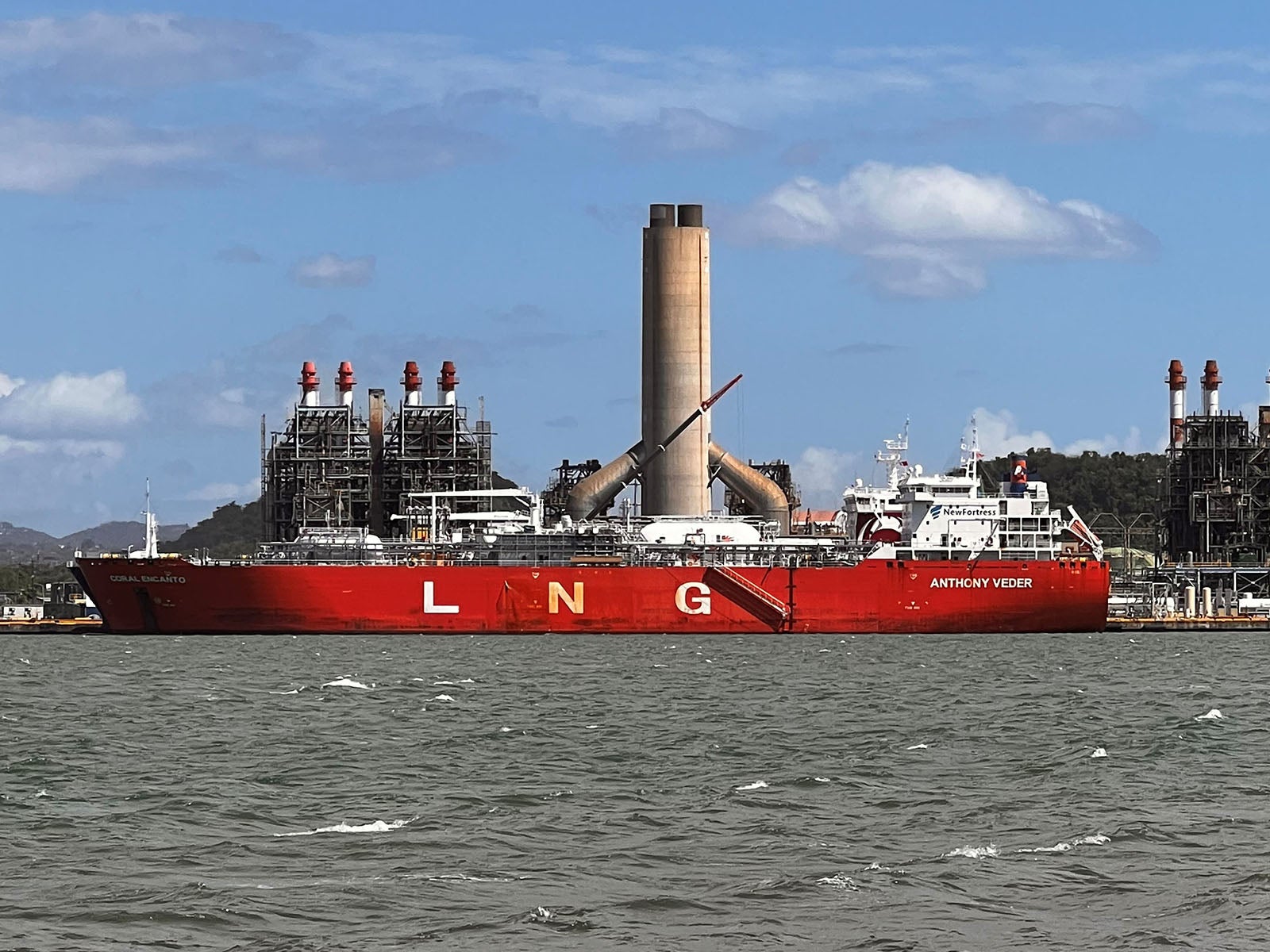Esta empresa de combustibles fósiles pone en peligro a las comunidades puertorriqueñas
Lo Que Está En Juego
En 2018, New Fortress Energy, a través de su subsidiaria NFEnergía con sede en Puerto Rico, comenzó a diseñar una terminal en el puerto de San Juan para importar gas metano licuado (LMG) sin la aprobación de la Comisión Federal Reguladora de Energía (FERC). Esto es una violación a la ley federal.
Tras este hecho, NFEnergía evadió el debido proceso en el que FERC evaluaría los riesgos para la salud, el medio ambiente y la seguridad pública de los proyectos de gas y petróleo antes de que comiencen a operar. Por consiguiente, se debió informar al público para que participaran en cualquier proceso de aprobación.

Delivery to la Comisión Federal Reguladora de Energía
Aviso Importante
Su mensaje ha sido remitido a una agencia pública, por lo que toda información entregada puede encontrarse en un récord público. Sugerimos no enviar información confidencial.
Esta acción de Earthjustice se aloja en EveryAction. Conozca más sobre la política de privacidad de EveryAction.
¿Tiene Problemas Al Ver Esta Petición?
Si el formulario de arriba no descarga, le solicitamos que pause cualquier bloqueador de publicidad en su navegador y recargue esta página nuevamente. Si el formulario sigue sin desplegarse, por favor reporte cualquier inconveniente a rvalencia@earthjustice.org. ¡Gracias!
Your Actions Matter
Your messages make a difference, even if we have leaders who don't want to listen. Here's why.
You level the playing field.
Elected officials pay attention when they see that we are paying attention. Read more.
They may be hearing from industry lobbyists left and right, but hearing the stories of their constituents — that’s your power.
Our legislators serve at the pleasure of the people who gave them their job — you.
Make sure your elected officials know whose community and whose values they represent. When you contact your elected official, you’re putting a face and a name on an issue.
Whether or not you voted for them, they work for you, for the duration of their term.
Make sure your elected officials know whose community and whose values they represent. (Find your local, state, and federal elected officials.)
Your action is with us in court.
If a federal agency finalizes a harmful action, the record of public comments provides a basis for bringing them into court. Read more.
Throughout each of the public comment periods we alert you to, Earthjustice’s attorneys are researching and writing in-depth, technical comments to submit — detailing how the regulation could and should be stronger to protect the environment, our communities, and our planet.
We need you to join us — your specific experiences, knowledge, and voice are crucial to add to the Administrative Record through the comment periods.
Lawsuits we file that challenge weak or harmful federal regulations rely on what was submitted during the comment period. The court can only look at documents that are in the Administrative Record — including the public comments — to decide if the agency did something improper.
Your actions aid our litigation. Taking action and submitting comments during a comment period is substantively important.
It’s the law.
Federal agencies must pause what they’re doing and ask for — and consider — your comment. Read more.
Many of us may have never heard of the National Environmental Policy Act (NEPA) and the Administrative Procedure Act (APA), but laws like these require our government to ask the public to weigh in before agencies adopt or change regulations.
Regulations essentially describe how federal agencies will carry out laws — including decisions that could undermine science, or weaken safeguards on public health.
Public comments are collected at various points throughout the federal government’s rulemaking process, including when a regulation is proposed and finalized. (Learn about the rulemaking process.) These comments become part of the official, legal public record — the “Administrative Record.”
When the public responds with a huge outpouring of support for environmental protections, these individual messages collectively undercut politicians' attempts to claim otherwise.
What this means is each of us can take a role in shaping the rules our government creates — and ensuring those rules are fair and effective.